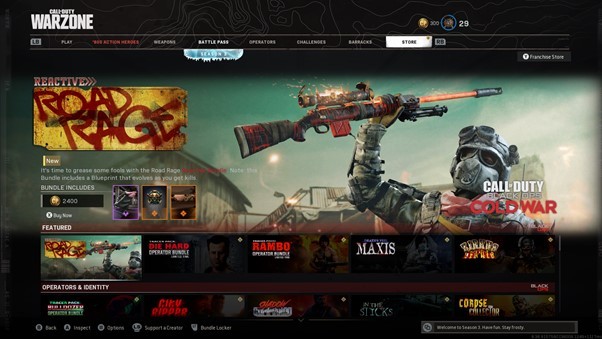
It's no secret that the business model of video games is a necessary evil (in fact nowadays it's become almost financially necessary) that has gradually morphed into what's commonly known as "games as a service".
With traditional releases pricing themselves as a one-off $30-$70 purchase being something of an archaic income structure, the real money is in having the lowest possible barrier to entry (often shipping games as completely free) and implementing the infinite feedback loop that keeps players spending.
Triple A games now use their stores as their economy generators, with a litany of skins for a number of things like characters, outfits, and weapons generating ungodly amounts of revenue every year.
This is hardly new information, so why oh why am I wasting virtual ink by harping on about this fact? Well, I have a theory about how this can be opened up further and how these studios can carve out a vein of freelance employment for people to enter into.
A Revolution is Coming
Long gone are the days when video games would be just finished, pushed out the door and never looked at again. Almost every project produced now has an evergreen nature to it, especially if it has any kind of multiplayer or PvP aspect encompassed within it. While you might get things like new maps or new weapons every now and then, the lifeblood that keeps these money machines churning is the different designs for characters and their equipment.

From launch day, games are expected to have some kind of storefront to continue to take player's money long after their initial release, showcased here in EA's Knockout City
I'm sure there's a whole team of talented artists at any number of development studios, what if studios like Activision, EA, Ubisoft, 2K, etc. allowed people to submit designs for characters and/or weapons, and the companies would either buy the rights to those designs from people, or allow people to earn a certain percentage of every sale?
A handful of games have a Peer-to-Peer marketplace implemented already, and while those have become something of a Wild West with silly sums of money trading hands for what is ostensibly a piece of pixelated nothingness (I don't say this to discredit the notion of paying for cosmetics, I myself have paid for these types of products such as CS:GO skins), the first publisher to make this kind of shift to giving some financial power back to its players could start a trend at worst and a revolution at best.
Design, Sell, Repeat
While I can see most big companies being very reluctant to go for this theory as it means sacrificing an element of money up front and becoming a minor short-term loss (for the record what I believe would turn into a very lucrative long-term gain), I think it would allow people with a penchant for design and artistic flair to have a really cool way to become part of the games they play.
Imagine in your next Warzone game being able to jump into Verdansk in your own fully self-customised gear. Or better yet, conceive the thought of seeing hordes of gamers running around with the weapon skin that you yourself designed. Would it be cool? You're damn right it would be cool.
This also wouldn't just have to stop at full PvP titles like the aforementioned Call of Duty, Rainbow Six Siege, Rocket League, or take your pick from any number of popular multiplayer games. In more recent years, there's been a dramatic increase in games that arguably don't really have a need or a right to have any kind of storefront or be doing any kind of aesthetic peddling.
Or worse still, they've formulated their own Pay2Win system, epitomised in Deus Ex: Mankind Divided's purchasable Praxis Kits that allow people to circumvent acquiring upgrade points.

Crash Team Racing: Nitro-Fuelled has been flooded with additional artistic content, plus characters that never even existed prior and have been created solely for inclusion in the game as optional extras
So, my rebuttal to this influx of these cosmetically focused mechanics would be: why not let players' take a small piece of the pie and at the same time have the community themselves create content that they want to use?
There's no shortage of people mocking up their own versions of characters in fan-fiction and on sites like Tumblr and Deviantart (granted you have to wade past the sticky mass of R rated content), so why not let these people provided content for your game and let them have a monetary gain at the same time?
Theories are great, but let's talk Logistics
There would obviously need to be some rules in place, otherwise you'll have some NSFW content flying around in a game that has an audience of millions, the majority or a large chunk of which will be under the age of 18, and the legal floodgates spring wide open and the crumbling dam of litigation will bury all in its wake. And once something is out there that shouldn't be, it will almost be nigh on impossible to get it back.
So, all artwork will have to be submitted to whatever company is handling the game. That way everything has to go through them.
Then there would have to be technical specifications like file types, sizes, and any other stuff that would make the development team's job of handling the user-generated content as simple as possible when it comes to implementing it.
I would say that the studio in question could start handing out certain blank canvas assets that people could wrap their work on to but this could culminate in a recipe for disaster, with items being sold on to nefarious sources. It's just safer to give people the specs they need to work towards and then go from there.

Skins, costumes, and outfits are a huge part of what makes up a video game now, so why not let the community in on the act?
An Idealist Reality
While I think this could be a great idea for companies to start implementing (but then again, I'm biased because it's my idea), keeping a handle on it will be a full-time job for a team of people, allowing the acceptable stuff and turning away the explicit and the unsuitable.
I can't see any of the big publishers wanting to adopt this until there's a proven case study to go on, so an Indie dev would have to hit big with it first before that happens.
Either way, here's hoping.
* This is a contributed article and this content does not necessarily represent the views of sciencetimes.com










!['Cosmic Glitch' in Einstein's Theory of General Relativity Could Be Explained in This New Scientific Tweak [Study]](https://1721181113.rsc.cdn77.org/data/thumbs/full/53435/258/146/50/40/cosmic-glitch-in-einsteins-theory-of-general-relativity-could-be-explained-in-this-new-scientific-tweak-study.jpeg)



